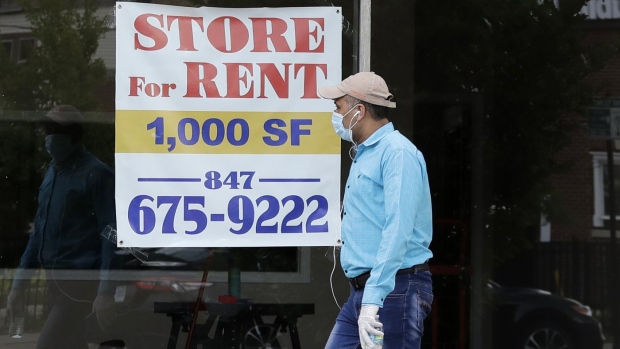For small businesses hoping to establish or expand their brick-and-mortar presence, it may seem like a bad time to sink cash into a commercial property purchase.
Amid predictions of an upcoming recession, the U.S. Federal Reserve increased the federal funds rate for the sixth time in 2022, citing inflation risks and global conflict. Inevitably, this will make loans more expensive for borrowers.
In reality, though, the perfect time to buy commercial real estate doesn’t exist. And when you consider the bigger picture, not all signs point to doomsday.
“There are still really amazing opportunities out there, but I think it really requires small-business owners to think about what their goals and their plans are,” says Alyssa Dangler, a commercial real estate attorney and president-elect of Commercial Real Estate Women Network.
Here’s what small-business owners should consider when deciding whether to purchase commercial real estate.
COST OF BORROWING
While higher interest rates might not make or break a deal, they could push business owners to cut the size of their down payments or reduce spending elsewhere to accommodate larger monthly payments. Small-business owners waiting for interest rates to fall might be in a holding pattern for longer than they expected, though. According to the Federal Reserve, future fed rate hikes are likely.
However, today’s interest rates don’t seem as astronomical when you look at rates throughout history, Dangler says. For instance, the annual average rate for a 30-year fixed-rate mortgage was 8.39 per cent in 1992 and 16.04 per cent in 1982. This year’s average currently stands at 5.08 per cent.
Some entrepreneurs, like Elaina Paige Thomas, owner of Next Paige Talent Management and Production, are choosing to move forward despite rising rates.
“It didn’t scare me because I know that we can always refinance down the road,” Thomas says. “It’s still going toward ownership and equity, so for me, that was always the goal.”
POTENTIAL RENOVATIONS
Buying commercial property becomes more complicated if construction loans are involved. Interest rates for this type of financing are typically variable, leaving plenty of opportunity for rates to climb over the duration of the project.
To mitigate the risk of a business being unable to afford costlier future payments, Dangler explains, lenders may ask borrowers to purchase an interest rate cap. While this safety net ensures their rate won’t exceed a set limit, it’s also an additional cost.
Understand and prepare for these added costs before moving forward with a real estate deal. If you’re concerned about stretching your finances too thin, consider looking at buildings that don’t require major renovations, or scale back the scope of the project to only the essentials.
YOUR BUSINESS’S GROWTH STAGE
Typically, more mature businesses have capital and a strong understanding of their growth trajectory. These factors, plus time in business and more established credit, make for a more appealing loan application — and likely a better interest rate.
On the other hand, startup businesses may want to consider leasing before buying right away, suggests Max Grover, president-elect of Commercial Alliance of Realtors West Michigan. As opposed to more established businesses, he says, some startups might see better returns putting their cash toward inventory, equipment, hiring or marketing. Additionally, leasing gives them more flexibility to move locations if they grow.
EXPERT ADVICE
Connecting with a commercial real estate agent or broker who specializes in a particular type of property can help buyers weigh their options.
“It helps to have your own representation so that your interests are pursued,” says Barbi Reuter, CEO, chairman and designated broker of Cushman & Wakefield ‘ PICOR, a commercial real estate firm. “You want to have the expertise to move at the right time.”
In particular, they can help small-business owners narrow down their options, compare buy-versus-lease situations, run calculations and navigate market changes, she adds. They can also look into commercial zoning laws that determine which types of businesses can occupy the property and how it can be used.
YOUR MARKET
Factor in the market conditions for your particular industry and geographic region before committing to a space. Property demand may vary from sector to sector, which dictates how much competition you’ll face and, subsequently, how much negotiating power you’ll have.
Depending on your business type, Reuter suggests finding out where your customer base, suppliers or workforce are located, too.
“You really have to be super focused on what the dynamics are in your … geographic market and the market in which you sell or trade or operate your business,” Reuter says.
Data on where people are moving to and from, as well as industry reports on how other businesses in your sector are faring, can provide more insight.
This article was provided to The Associated Press by the personal finance website NerdWallet. Hillary Crawford is a writer at NerdWallet.
Source link
Related
























